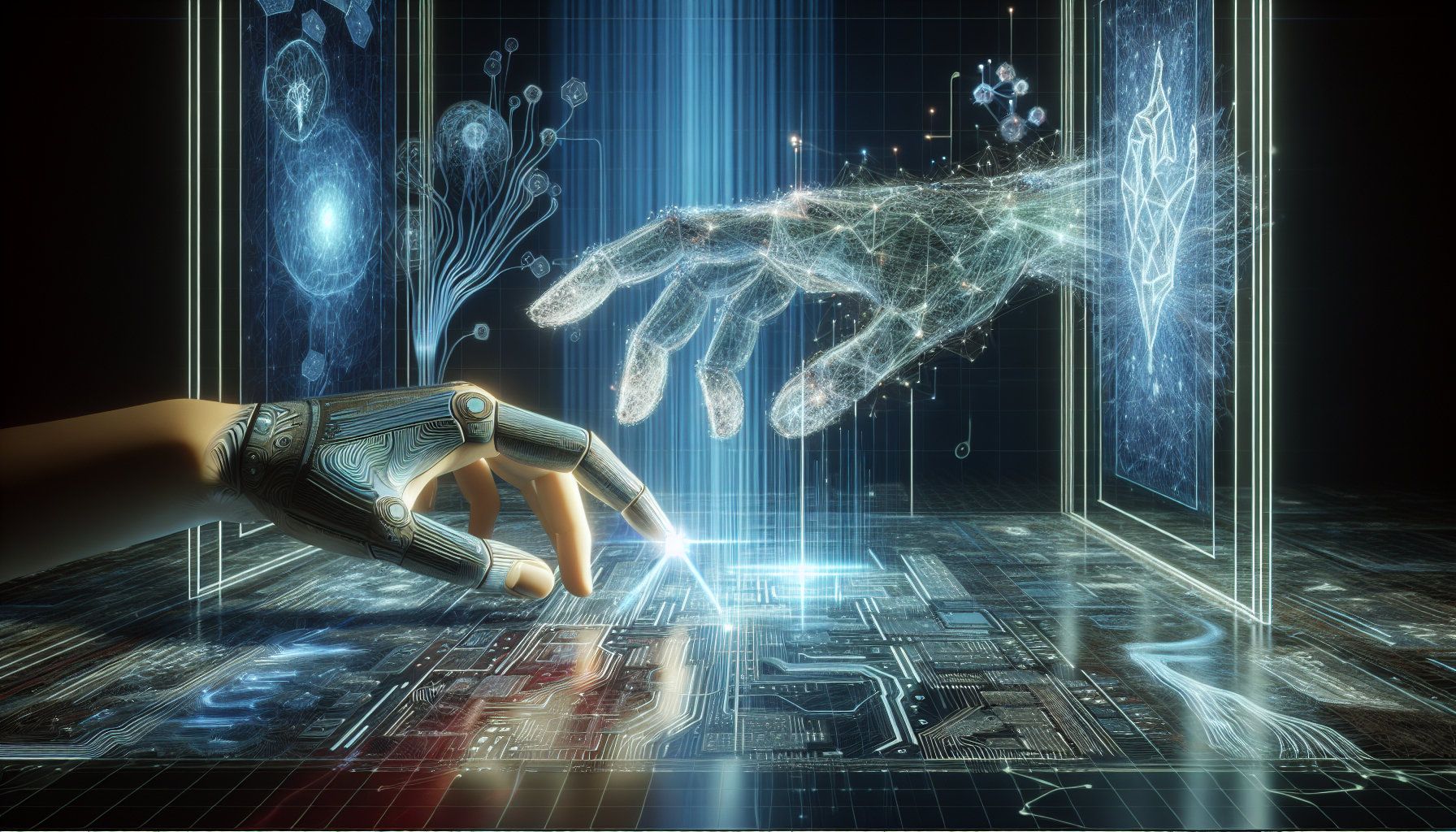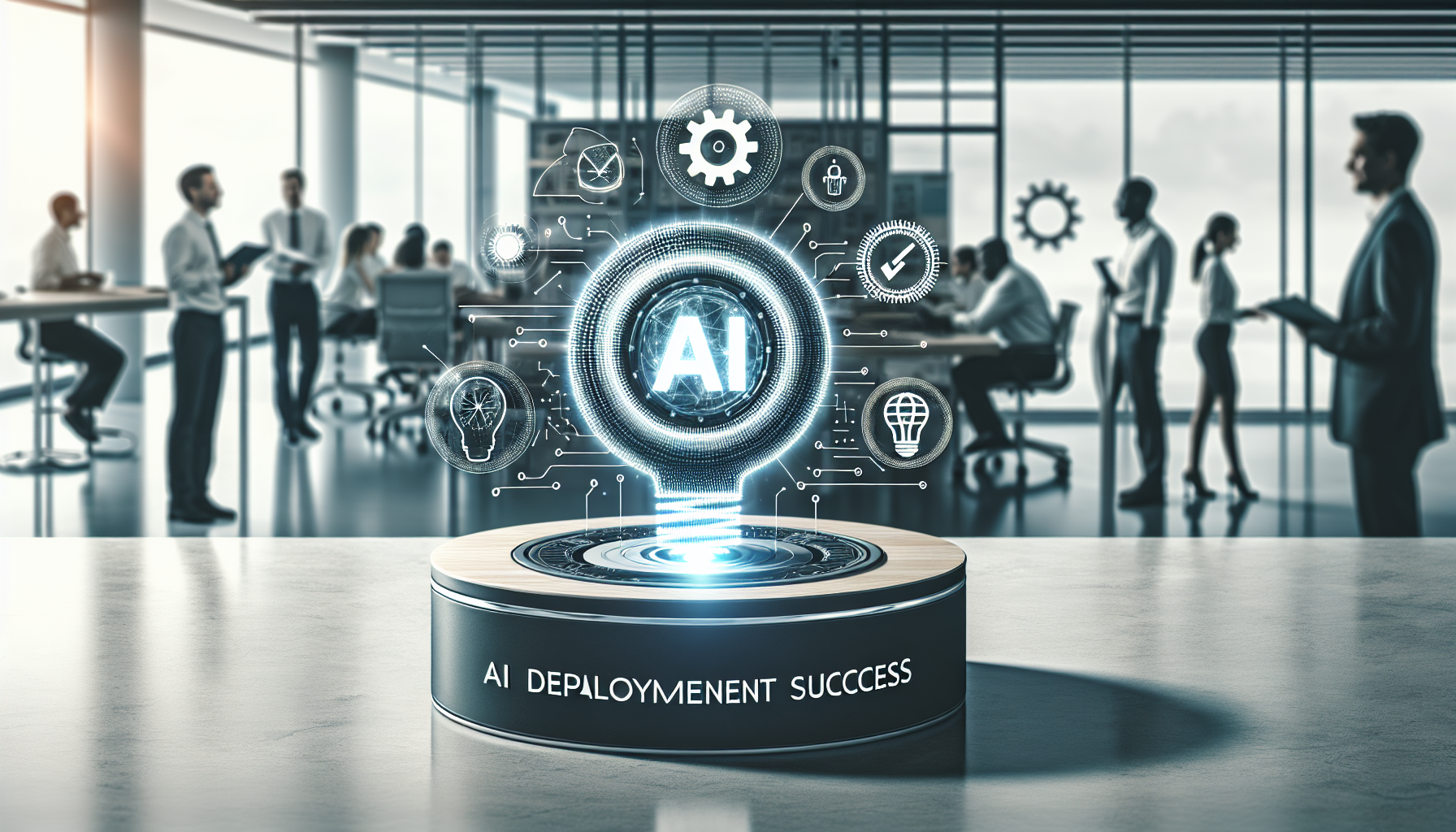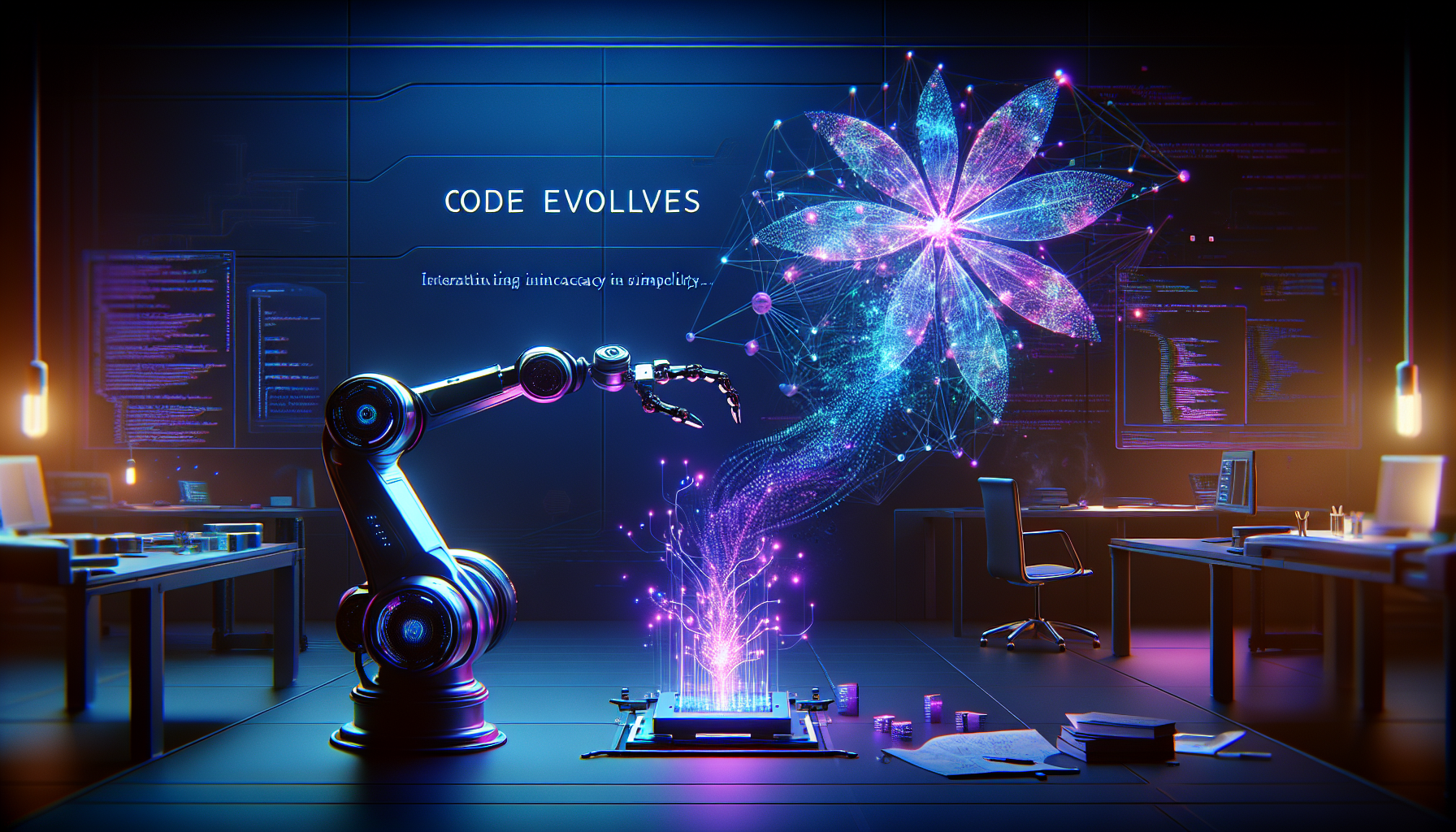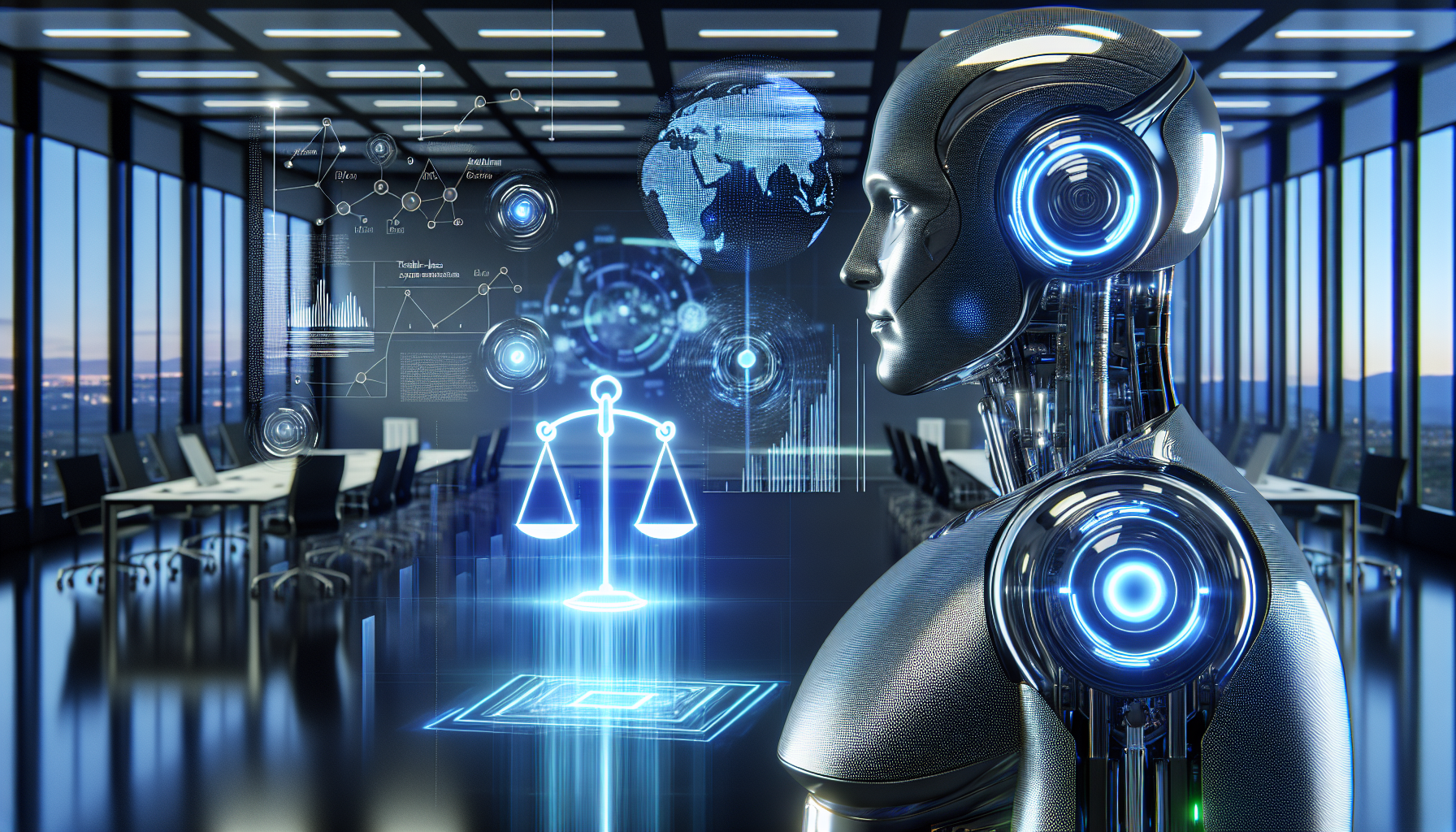The Future of Programming in an AI-Driven World: Navigating the Confluence of Human Ingenuity and Machine Intelligence
As we stand on the precipice of a new era in technology, the future of programming is inextricably linked with the rapid advancement of artificial intelligence (AI). This symbiotic relationship between human developers and AI-driven systems is reshaping the landscape of software development, presenting both unprecedented opportunities and complex challenges. In this article, we’ll explore how programming is evolving in response to AI, the skills that will be crucial for future developers, and the ethical considerations that will shape our approach to coding in an AI-driven world.
The Shifting Paradigm: From Traditional Coding to AI-Augmented Development
The traditional approach to programming, characterized by manual coding of explicit instructions, is undergoing a profound transformation. As AI technologies mature, we’re witnessing a shift towards more abstract, high-level programming paradigms. This evolution is not about replacing human programmers but rather augmenting their capabilities and changing the nature of their work.
Key changes in the programming landscape include:
1. Automated Code Generation: AI-powered tools are increasingly capable of generating code snippets or even entire functions based on natural language descriptions or high-level specifications.
2. Intelligent Code Completion: Advanced autocomplete features, powered by machine learning models, can predict and suggest entire code blocks, significantly speeding up development.
3. Bug Detection and Correction: AI systems can analyze code in real-time, identifying potential bugs and offering suggestions for fixes before they become issues in production.
4. Optimization of Algorithms: Machine learning techniques can be employed to automatically optimize code for performance, scalability, and efficiency.
5. Natural Language Programming: The ability to translate human language into executable code is improving, potentially lowering the barrier to entry for programming.
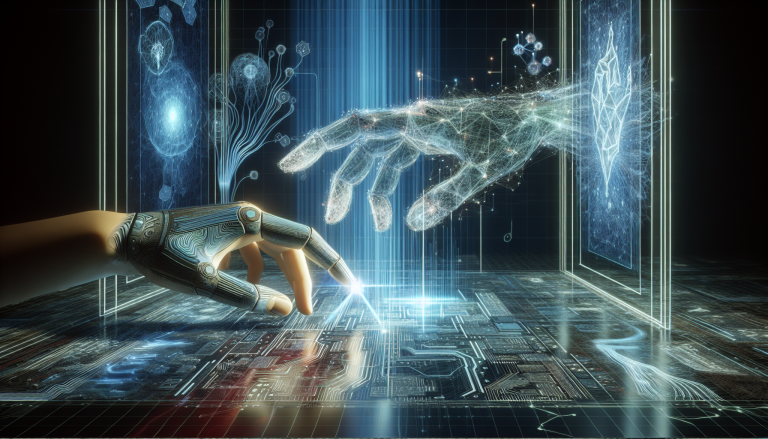
Essential Skills for the AI-Era Programmer
As the role of AI in programming expands, the skill set required for successful developers is evolving. Future programmers will need to cultivate a unique blend of technical expertise and soft skills to thrive in this new landscape.
1. AI and Machine Learning Fundamentals: A solid understanding of AI concepts, machine learning algorithms, and neural network architectures will be crucial for working effectively with AI-driven development tools.
2. Data Science and Analytics: As AI systems rely heavily on data, proficiency in data manipulation, analysis, and visualization will become increasingly important.
3. Ethical AI Development: Understanding the ethical implications of AI and implementing responsible AI practices will be a key differentiator for developers.
4. Algorithmic Thinking and Problem-Solving: Despite AI’s growing capabilities, human creativity in problem-solving and algorithm design will remain invaluable.
5. Interdisciplinary Knowledge: As AI applications span various domains, developers with expertise in fields like biology, finance, or psychology will be highly sought after.
6. Adaptability and Continuous Learning: The rapid pace of AI advancement necessitates a commitment to lifelong learning and the ability to quickly adapt to new tools and paradigms.
7. Collaboration and Communication: As development becomes more interdisciplinary, the ability to work effectively in diverse teams and communicate complex ideas will be essential.
The Evolving Development Process: A Symbiosis of Human and Machine Intelligence
The future of programming will likely see a more collaborative relationship between human developers and AI systems. This partnership will manifest in various stages of the development lifecycle:
1. Requirements Gathering and Analysis:
– AI systems will assist in analyzing user needs and translating them into technical specifications.
– Natural language processing will facilitate more efficient communication between stakeholders and development teams.
2. Design and Architecture:
– AI-powered tools will suggest optimal system architectures based on project requirements and best practices.
– Generative design techniques will propose multiple solutions for developers to refine and customize.
3. Implementation:
– Automated code generation will handle routine tasks, allowing developers to focus on more complex, creative aspects of programming.
– AI pair programmers will provide real-time suggestions and code reviews.
4. Testing and Quality Assurance:
– AI-driven testing tools will automatically generate test cases and identify edge cases that human testers might miss.
– Continuous integration and deployment pipelines will be optimized by machine learning algorithms.
5. Maintenance and Evolution:
– AI systems will monitor application performance, predicting potential issues before they occur.
– Automated refactoring tools will help keep codebases clean and up-to-date with minimal human intervention.
Ethical Considerations in AI-Driven Programming
As AI becomes more integral to the programming process, ethical considerations must be at the forefront of development practices. Key areas of focus include:
1. Bias and Fairness: Ensuring that AI-generated code and AI-driven development tools do not perpetuate or amplify biases present in training data.
2. Transparency and Explainability: Developing AI systems that can explain their decision-making processes, especially in critical applications.
3. Privacy and Data Protection: Implementing robust safeguards to protect user data in AI-driven systems.
4. Accountability: Establishing clear lines of responsibility for AI-generated code and its consequences.
5. Job Displacement: Addressing the potential impact of AI on the programming job market and ensuring a just transition for affected workers.
The Road Ahead: Challenges and Opportunities
The integration of AI into programming presents both exciting opportunities and significant challenges. Some key areas to watch include:
1. Education and Training: Adapting computer science curricula to prepare students for an AI-driven development landscape.
2. Standardization: Developing industry standards for AI-assisted programming tools and practices.
3. Security: Addressing new vulnerabilities that may arise from AI-generated code or AI-driven development processes.
4. Creativity and Innovation: Balancing the efficiency gains of AI with the need for human creativity and innovation in software development.
5. Accessibility: Leveraging AI to make programming more accessible to a wider range of individuals, potentially democratizing software development.
As we navigate this transformative period in programming, it’s clear that the future belongs to those who can harness the power of AI while maintaining a strong foundation in computer science principles and ethical considerations. The programmers of tomorrow will be architects of intelligent systems, collaborating with AI to solve complex problems and create innovative solutions that push the boundaries of what’s possible in technology.
In this AI-driven world, the essence of programming will shift from writing lines of code to orchestrating intelligent systems, designing algorithms that learn and adapt, and ensuring that our AI collaborators align with human values and societal needs. It’s an exciting frontier that promises to redefine not just how we program, but how we interact with and shape the digital world around us.
